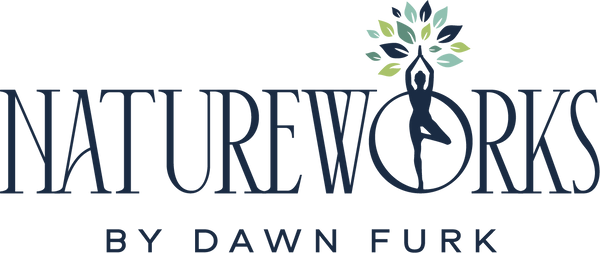In the vibrant tapestry of the fashion industry, the threads that make up the clothes you place against your skin extend beyond mere aesthetics. Threads are capable of weaving narratives of sustainability, ethics, and environmental consciousness. With the rise of eco-conscious consumers, brands are increasingly turning to certifications and labels to showcase their commitment to sustainability.
When you wear high-frequency clothing, your body will appreciate it, and so will the planet.
Dawn Furk of DMF Designs Explains Greenwashing, Ethics and Environmental Awareness for Clothing
Amidst the ocean of labels, the distinction between genuine sustainability and greenwashing can often be confusing. Here is more about fabric labeling, exploring major certifications like GOTS and Oeko-TEX, and shedding light on the significance of high-frequency fabrics in the context of sustainable fashion. Decoding GOTS and Oeko-TEX Certifications, Natureworks chooses Organic over Oeko-Tex
Why do certifications matter? If you are focused on wearing garments that are ecologically sound and environmentally conscious, it helps to understand the role of certifications. Certifications validate a brand's sustainability claims.
The Global Organic Textile Standard (GOTS) and Oeko-TEX are two prominent certifications that uphold stringent criteria to ensure environmentally and socially responsible textile production. GOTS certification encompasses the entire textile supply chain, from harvesting of raw materials to the finished product, ensuring the use of organic fibers and adherence to fair labor practices.
Oeko-TEX certification focuses on the safety of textile products, testing for harmful substances and chemicals throughout the manufacturing process. The most common certification is OEKO-TEX Standard 100, which guarantees that all aspects of a textile are free of 100 harmful chemicals.
While both certifications offer valuable assurances to consumers, understanding the nuances between them empowers individuals to make informed choices that align with their values.
Why Greenwashing is a Threat to Truly Sustainable Practices
Amidst the proliferation of sustainability labels, greenwashing is all-too common. Greenwashing refers to the deceptive practice of conveying a false impression of environmental responsibility.
Greenwashing often involves the misuse of ambiguous terms and vague claims to mislead consumers into believing that a product is more sustainable than it actually is.
In the realm of fashion, greenwashing can manifest in various forms, such as exaggerated eco-friendly claims or token gestures that mask unsustainable practices. To combat greenwashing, consumers can equip themselves with a critical mindset, interrogating brands' sustainability narratives and scrutinizing the veracity of their claims. Beware of viscose bamboo as this is not certified clean of harmful pesticides.
Natureworks By Dawn Furk Champions High-Frequency Fabrics
Natureworks adheres to authenticity in the realm of sustainable fashion. The company distinguishes itself by exclusively carrying high-frequency fabrics, which demonstrate the essence of eco-consciousness.
But what exactly does this entail? High-frequency fabrics encompass a spectrum of natural fibers, including linen, organic cotton,hemp and wool. These fibers are derived from renewable resources and boast eco-friendly attributes.
For instance, organic cotton does not use synthetic pesticides and fertilizers, promoting soil health and biodiversity. Similarly, wool is biodegradable and possesses inherent properties such as breathability and insulation, making it a sustainable choice for winter and cold-weather garments.
Embracing Natural Fibers for Sustainability on the Planet
Natureworks commitment to high-frequency fabrics is built upon a profound appreciation for the intrinsic value of natural fibers. Unlike synthetic counterparts, which are derived from petrochemicals and contribute to microplastic pollution, natural fibers offer a renewable and biodegradable alternative.
The cultivation of natural fibers often entails lower water consumption and carbon emissions compared to synthetic fibers, further mitigating the environmental footprint of textile production. By championing natural fibers, Natureworks carefully vets the clothing carried in its clothing lines with products that always represent sustainable fashion, prioritizing environmental stewardship and ethical integrity.
Knowledge Empowers Consumers in the Age of Sustainability
As conscientious consumers, navigating sustainability labels and certifications can be daunting. However, armed with knowledge and discernment, we possess the agency to discern between genuine sustainability and greenwashing. By interrogating brands' supply chains, scrutinizing their environmental and social impact, and prioritizing products crafted from high-frequency fabrics, we seek to spur meaningful change in the fashion industry. We are choosing to weave a tapestry of sustainability, one thread at a time.
In conclusion, awareness of fabric labeling, juxtaposed with the insidious practice of greenwashing in the fashion industry, give Natureworks by Dawn Furk motivation for creating and paving a new reality. Through Natureworks commitment to high-frequency fabrics, we provide a narrative of authenticity, integrity, and environmental consciousness. Our brand Natureworks carries only high-frequency fabrics: natural fibers, linen, silk, organic cotton and wool.
You can find our clothing line here: https://www.natureworksdesign.co/collections/naturewears, including fuzzy slippers and soft pajamas created for comfort with sustainable fabric.
